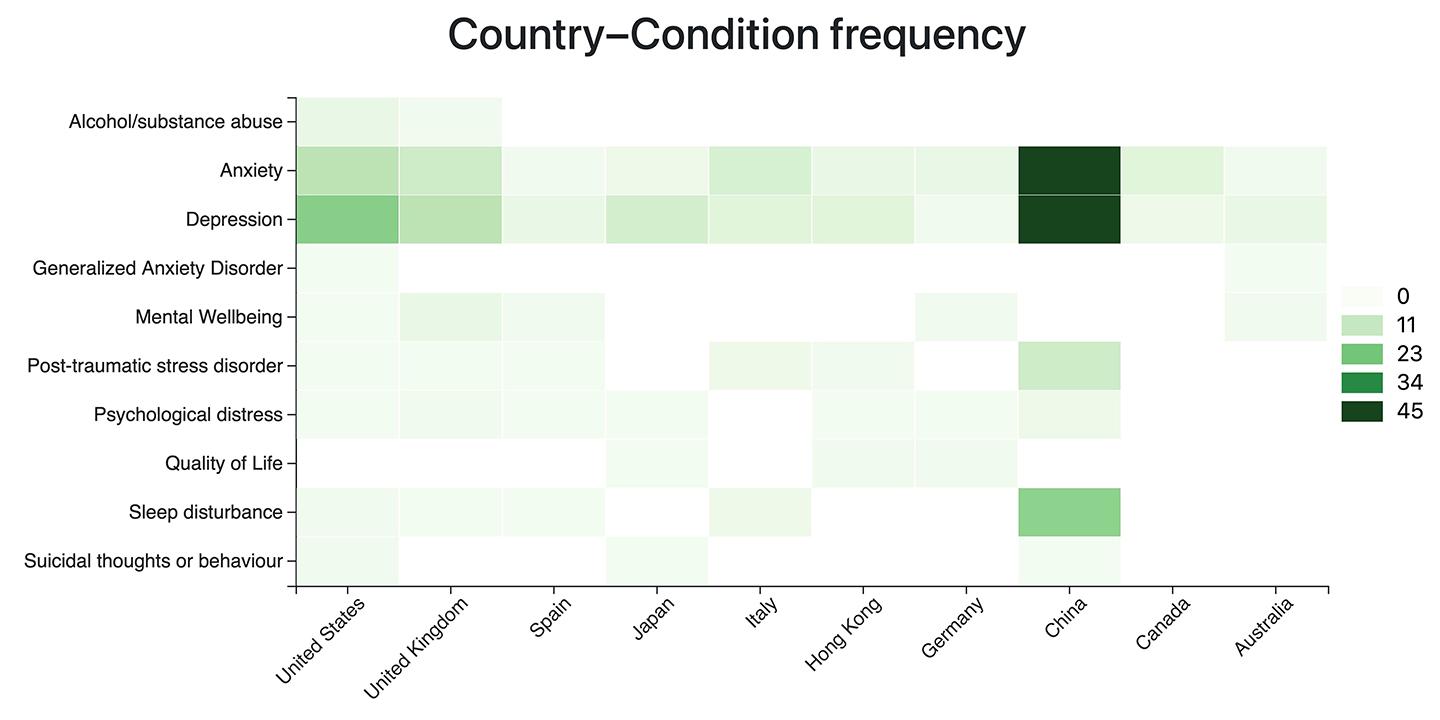The effect of the COVID-19 pandemic on mental health
A meta-ecological study within a living systematic review platform, crowdsourcing, and several methodological innovations created the MHCOVID framework that answered the question: How did the Covid-19 pandemic and the containment measures affect our mental health?
Background
The length and intensity of social isolation and the fear of infection have adverse effects on public mental health. The efficiency of the measures taken by governments to contain the spread of the virus has to be considered in combination with their potentially detrimental impact on mental health. At the start of the project, it was not clear to what extent the Covid-19 pandemic and its containment measures influenced mental health. This is because the numerous relevant studies were presenting conflicting results.
Aim
We aimed to assess the trajectory of mental health symptoms during the pandemic and examine dose-response relations with characteristics of the pandemic and its containment measures. Further, we aimed to examine how individual characteristics such as age, gender and comorbidities modified people’s mental health during the pandemic.
Results
In a total of 43 longitudinal studies (331,628 participants) we found that changes in symptoms of psychological distress, sleep disturbances and mental wellbeing, varied substantially across studies. On average, depression and anxiety symptoms worsened in the first two months of the pandemic; thereafter the trajectories were very heterogeneous. We found a linear association between worsening of depression and anxiety with increasing numbers of reported SARS-COV-2 cases and increasing stringency in governmental measures. Unpublished results: We are currently reviewing data from 176 cross-sectional studies. The average prevalence of mental health problems in women was higher than in men; however, these differences were comparable to epidemiological differences observed before the pandemic. The prevalence of mental health problems was also higher in adults compared to children, adolescents or elderly people.
High heterogeneity in study findings suggests that different populations responded differently to the stress factors induced by the pandemic and the measures for its containment. The average symptoms score for depression and anxiety increased during the first two months of the pandemic by variable amounts; they also increased with increasing stringency of the containment measures and cumulative number of reported cases. However, heterogeneity was large and some studies reported improvement in sleeping, psychological distress and mental wellbeing during the pandemic or in depression and anxiety, particularly after the first three months. It is possible that these differences between study findings are attributable to factors other than differences in age, sex, social inequalities, or country wealth.
The implications of these findings for the current and future pandemics are twofold. First, the small and uncertain impact of containment measures on mental health should be politically weighted against the level of certainty with which the distancing measures efficiently contain the spread of the virus. Second, the high heterogeneity suggests that some populations clearly experience a substantial increase in mental health problems, particularly in the beginning of the pandemic and with increasing number of reported cases.
Specific contribution to tackle the current pandemic
Even if the true impact of the pandemic is small in terms of increase in symptoms, this small increase concerns a large number of people creating a public health emergency. This shall urge once again governments and health organizations in Switzerland and abroad to put in place structures and public mental health interventions for those who need it.
Original title
A continuously updated meta-ecological study of the effects of the COVID-19 pandemic on mental health, alcohol/substance abuse and violence in the general population
Website NRP 78 Research

